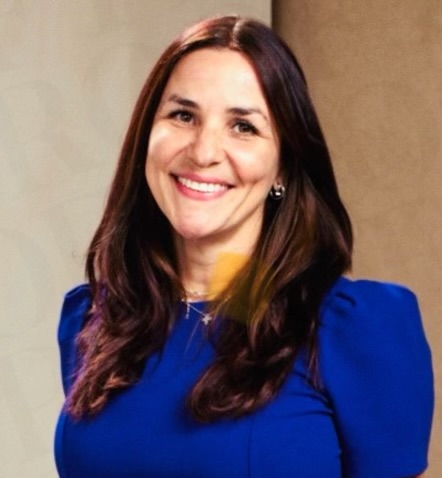
By: Lindsay Dietz
Every July, National Minority Mental Health Awareness Month provides an opportunity
to spotlight the unique mental health challenges faced by our minority communities.
Established in 2008 by the U.S. House of Representatives, this month-long observance
aims to enhance public awareness of mental health disparities among minorities,
reduce stigma, and promote mental health equity. This month also provides us with the
opportunity to recognize the persistent barriers that minorities face and explore
pathways to improved mental well-being for all. Understanding these challenges is
essential to addressing them effectively.
Mental Health Stigma and Disparities
Minority populations are at an increased risk of developing certain mental health
conditions[1]. In 2020, the Office of Minority Health reported that Black or African
American individuals living below the poverty line were twice as likely to experience
serious psychological distress compared to those living above the poverty line. This
unambiguous disparity highlights the significant impact of socioeconomic status and
race on mental health outcomes. During the same year, the Substance Abuse and
Mental Health Services Administration (SAMHSA) found that Hispanic adults had a
higher prevalence of serious psychological distress compared to non-Hispanic whites.
These statistics reveal just a portion of the broader issue, as many minority
communities face unique stressors that further complicate their mental health
landscape.
Many minority communities face higher exposure to traumatic events such as violence,
discrimination, and immigration stress, which significantly impact mental health,
especially among the most disinvested populations: youth and children. These young
individuals are more likely to encounter bullying, discrimination, and socioeconomic
challenges, leading to higher rates of depression and anxiety. This perpetuates a cycle
of silence and misunderstanding, and when not addressed, can result in suicidal
ideation. Compounding these external challenges is the internalized stigma surrounding
mental health within many minority communities.
In many minority communities, mental health issues are still perceived as a sign of
weakness or a taboo subject. This perception leads to underreporting and reluctance to
seek treatment. Even when individuals overcome these cultural barriers and decide to
seek help, they also might encounter systemic racism and discrimination within our
healthcare systems. This can result in misdiagnosis, inadequate treatment, long waiting
lists, and lower quality of care.
Mental health is a critical component of overall health, yet minority communities
continue to face significant obstacles with accessing quality mental health care.
Although we have come a long way, there are still barriers related with access to
services, socioeconomic factors, cultural stigma, lack of representation in the mental
health workforce, and systemic inequalities in healthcare. The cost of treatment, lack of
insurance, geographic isolation, and cultural attitudes towards mental health exacerbate
these challenges.
To move towards a more equitable and inclusive mental health care system that better
serves minority communities, these interconnected barriers must be addressed as a
community.
Where to Start? The Perceptions of Mental Health
In many cultures, mental health issues are often perceived as a personal weakness or a
failure of character rather than a legitimate medical condition. This perception can
discourage individuals from acknowledging their mental health needs and seeking
professional help. Mental health problems are frequently seen as taboo topics that
should be kept private. Individuals may feel ashamed or embarrassed about their
mental health struggles and worry about being labeled or discriminated against if they
seek help.
The fear of stigma can lead to delays in seeking treatment, resulting in the worsening of
symptoms and increased difficulty in managing mental health conditions effectively. It is
necessary to break the silence. Raising awareness about mental health and challenging
stigmatizing attitudes are crucial steps in promoting mental well-being.
Education campaigns can help demystify mental health issues and emphasize that
mental health conditions are medical problems, not personal failings. However, as
community leaders, parents, co-workers, and influencers, we can also become mental
health advocates, playing a pivotal role in normalizing conversations about mental
health within our circles of friends and communities. By sharing personal stories,
promoting open dialogue, and providing accurate information, we can reduce stigma
and encourage individuals to seek the support they need, when they need it.
The Role of Voting and Electing the Right Officials
The path to mental health equity and improved well-being for minority communities is
significantly influenced by the policies and priorities set by elected officials. Voting and
electing the right officials and advocates are crucial steps in addressing mental health
disparities. Remember, the people you choose as your elected officials will have the
power to enact policies that can improve access to mental health services, increase
funding for mental health programs, and address the social determinants of health that
disproportionately affect minority communities. By voting for candidates who prioritize
mental health equity, we can help ensure that these critical issues receive the attention
and resources they deserve. Policies that support mental health education, reduce
stigma, and promote culturally competent care can lead to more effective and inclusive
mental health services. Electing officials who understand and are committed to culturally
sensitive approaches to mental health is essential for meaningful progress.
Voting empowers communities to take an active role in shaping their future. Community
engagement in voting also sends a powerful message to policymakers about the
importance of mental health issues. When communities come together to demand
change, it can lead to greater accountability and responsiveness from elected officials.
National Minority Mental Health Awareness Month is an essential time for us to focus on
the mental health needs of minority communities. By recognizing and addressing the
systemic barriers, cultural stigmas, and socioeconomic challenges that contribute to
mental health disparities, we can move towards a more equitable and inclusive mental
health care system. Our role in this effort extends beyond mere awareness. Voting and
electing the right officials are vital steps in this journey. During the upcoming election,
let's ensure we support candidates who prioritize mental health equity and advocate for
inclusive policies. With our votes, we can create a future where mental health care is
accessible, effective, and fair for everyone, regardless of their background. Together,
we can build a future where mental health care is truly equitable for all.
———- Resources for Minority Communities Seeking Mental Health Support ——-
—
National Alliance on Mental Illness (NAMI)
Services: Provides education, support groups, and advocacy for individuals with mental
illness and their families. NAMI also offers resources specifically tailored to minority
communities.
Hotline: 1-800-950-NAMI (6264) or text "NAMI" to 741741.
Website: https://www.nami.org
Substance Abuse and Mental Health Services Administration (SAMHSA)
Services: Offers a behavioral health treatment locator, helpline, and various resources
for mental health and substance use disorders.
Hotline: 1-800-662-HELP (4357).
Website: https://www.samhsa.gov
Mental Health America (MHA)
Services: Provides screening tools, educational resources, and support groups. MHA
also focuses on addressing mental health disparities in minority communities.
Website: https://www.mhanational.org/
Crisis Text Line
Services: Offers free, 24/7 crisis support via text message.
Text Line: Text "HELLO" to 741741.
Website: https://www.crisistextline.org
Black Mental Health Alliance (BMHA)
Services: Provides educational forums, training, and a directory of culturally competent
mental health professionals for the Black community.
Website: https://cllctivly.org/listing/black-mental-health-alliance/
Asian Mental Health Collective
Services: Provides a therapist directory, support groups, and resources aimed at
improving mental health in the Asian community.
Website: https://www.asianmhc.org
The Trevor Project
Services: Provides crisis intervention and suicide prevention services to LGBTQ youth.
Hotline: 1-866-488-7386.
Text Line: Text "START" to 678678.
Website: https://www.thetrevorproject.org


